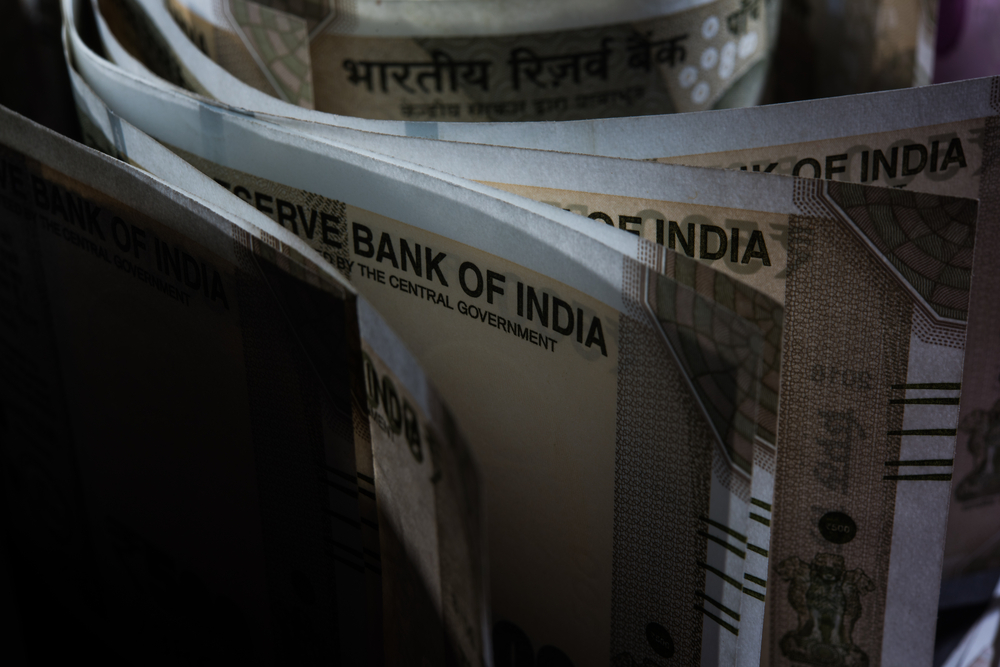India’s ’Shariah-compliant’ NBFCs and cooperative credit societies held back by lack of Islamic capital
In December, India’s finance ministry shot down the country’s central bank’s recommendation for the introduction of Islamic windows. Despite this setback, advocates of Islamic banking in India say they will continue to lobby for the introduction of the Shariah-compliant banking system. In the meantime, others continue to use non-mainstream banking avenues to offer what they claim to be Shariah-compliant products and services, but their reach and scale are limited.
India is witnessing a limited form of Shariah-compliant banking via non-conventional channels. Some microfinance institutions, cooperative credit societies and Non-Bank Financial Companies, or NBFCs, provide Shariah-compliant windows, but under different names.
Cheraman Financial Services Ltd, for instance, was set up in the early 2000s in the southern state of Kerala to provide interest-free products similar to Islamic finance. The NBFC, established with equity participation from the Kerala State Industrial Development Corporation and private investors—mostly Gulf-based non-resident Indians—has been reporting losses.
Another model seeing some traction among Muslims is that of cooperative credit societies, which are outside the purview of the central bank’s Reserve Bank of India (RBI) Act.
“Some of these societies have included in their by-laws the objective of providing interest-free finance to their members,” said Syed Zahid Ahmad, who runs an economic advisory and financial consultancy centre, Economic Initiatives, at Mumbra, a Muslim-dominated suburb of Mumbai. He says he assisted founding managing director Dr. Rahmatullah to formulate the by-laws of the Janseva Cooperative Credit Society Ltd.
Dr. Rahmatullah, who uses only one name, told Salaam Gateway that Janseva has developed an interest-free model with three key objectives in mind. “Our first objective is to save people from paying interest, and empower them economically by providing interest-free finance. The second is to tap the small savings of individuals and non-business groups that can be invested in accordance with Islamic principles through profit and loss sharing. We allow them to earn some additional halal income from that investment. And our third objective is to provide interest-free credit to households as well as micro, small and medium enterprises which are unable to avail credit from banks due to their risk profile.”
Within five years of operations, Janseva’s paid-up capital has grown from 197,000 Indian rupees ($2,900) to 250 million rupees ($3.7 million) and had revenues of 1.5 billion rupees ($22 million) in 2015. Its membership base has increased from 700 to 24,000, to which it has disbursed around 750 million rupees ($10.8 million) in loans.
In the current regulatory and political scenario, Dr. Rahmatallah said, cooperative credit societies are the only Shariah-compliant option.
Ahmad pointed out, however, that the growth of such NBFCs and credit societies is limited due to the difficulty of raising the required capital. “Basically, we lack sources of interest-free funds for NBFCs and cooperative credit societies,” he said.
|
RELATED Introduction of Islamic banking continues to face barriers in India |
ARABIAN GULF CONNECTION
Will the access to Islamic capital for NBFCs and credit societies come from outside India?
During a visit to Saudi Arabia in 2016, Prime Minister Narendra Modi signed agreements to strengthen financial cooperation. As part of that initiative, the Export-Import Bank of India (EXIM Bank) signed a memorandum of understanding with the Islamic Corporation for the Development of the Private Sector (ICD), the private sector arm of Islamic Development Bank (IDB) Group.
Through this MoU, EXIM Bank will extend a commercial line of credit of $100 million to ICD with the aim of facilitating the export of goods and services from India to ICD’s member countries. ICD will also open its first India office as an NBFC in Gujarat.
Zafar Sareshwala, a businessman from the western state of Gujarat with interests in the finance and automotive sectors, was part of that signing ceremony, and has been appointed a director for ICD’s India operations. “I urged ICD to forget about fully-fledged Islamic banking for the present and go for the low-hanging fruit instead, which is to open an NBFC regulated by the RBI. Within the ambit of an NBFC, there are many things one can do but you need capital of $ 50-100 million,” he told Salaam Gateway.
As an NBFC, ICD can offer various Islamic products based on murabahah, ijarah and mudarabah structures, he said. “You can structure these in a Shariah-compliant way; no one can stop you,” he said.
OPTIMISM
While there are these Shariah-compliant options, advocates of Islamic banking and finance in India are not giving up their fight for Islamic banking in the country.
“It’s not going to happen today or tomorrow. It will take time,” said H. Abdur Raqeeb, General Secretary of the Indian Centre for Islamic Finance (ICIF), a non-governmental organisation prominent in lobbying to introduce the concept of interest-free banking in India.
He added, however, that the planned visit of Sheikh Mohammed bin Zayed Al Nahyan, Crown Prince of Abu Dhabi and Supreme Commander of the UAE Armed Forces, as the chief guest at India’s Republic Day celebration on January 26 would be another step in the right direction.
“The UAE is one of the hubs of Islamic finance and banking. We expect that Sheikh Mohammed will discuss the opening of Islamic banks in India, because Indian banks are already operating in the UAE,” Raqeeb said.
© SalaamGateway.com 2017 All rights reserved

Syed Ameen Kader, Media ME